Search Results
Showing results 21 to 40 of 53

Circle Logic
Source Institutions
This is a deceptively simple game to teach strategy, planning, and pattern analysis. In this game, learners take turns removing tokens from a board, and develop a plan to take the last piece.

Color Spy
Source Institutions
In this activity (16th on the page), learners play a variation of the "I Spy" game to explore color. Learners work in teams with each team assigned a color.

Taste Match Game
Source Institutions
In this activity (3rd activity on the page), learners taste test different foods and categorize them as sweet, bitter, sour, or salty. Learners compare their results with the group.
Narrow It Down: Asking Yes-No Questions
Source Institutions
In this activity, the learner asks yes-no questions to identify a secret object (similar to Twenty Questions). This game is easy to adapt for different ages and different kinds of contexts.
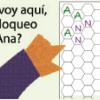
Bloqueo
Source Institutions
Jugando a este juego, los chicos desarrollan habilidades de lógica, geometría, y visualización espacial. Los jugadores empiezan con una red de hexágonos vacía.
Any Year Calendars
Source Institutions
This PDF contains 12 calendars (12 months). Each month contains activities about math. Things to do on familiar holidays (like July 4), less common holidays (like Backward Day), and any day.
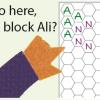
Touch and Go
Source Institutions
As learners play this game, they develop logic, geometry, and spatial visualization skills. Players start out with an empty hexagonal grid.

The Great Toss Off!
Source Institutions
In this math game, learners toss plastic cups to land just right and collect points to win.
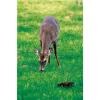
Who Eats What?
Source Institutions
This activity is on page 10 (continued on the right side of page 11) of the pdf, part of the Forest Animals Discovery Box. In this game, learners act out the food web.
Pom-Pom Probability
Source Institutions
In this math activity, learners predict how many pom-poms they can toss inside a circle from three feet away. Use this activity to help learners explore probability.

Guess My Rule
Source Institutions
In this math activity, learners play a game and try to be the first player to identify their partner's rule. Learners identify the rule by finding commonalities between three familiar objects.
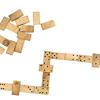
Domino Trains
Source Institutions
In this activity, learners practice matching and subitizing as they create the longest domino train possible.
Something is Different about You
Source Institutions
In this activity, learners use various dress-up or costume pieces to play a game of change.
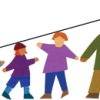
Line Up: Using Math To Stand In Line
Source Institutions
Put math of measurement into lining up — and make waiting in line fun. Choose a size characteristic that learners can physically compare, such as foot length or hair length.

Building Molecules
Source Institutions
This online interactive has three activities in the NanoLab (press the upper right button): Build, Zoom, and Transform.
Narrow it Down: Numbers
Source Institutions
In this activity, learners will ask yes-no questions to identify a secret number (similar to Twenty Questions). Combine logic and numbers in this game for all ages.
Tree Poker
Source Institutions
In this activity (p.14-15 of PDF), learners discover the concepts of competition and limiting factors as they relate to plant and animal communities.

Exploring Fabrication: Self-Assembly
Source Institutions
In this activity, learners participate in several full-body interactive games to model the process of self-assembly in nature and nanotechnology.

Audio Memory
Source Institutions
In this interactive game, learners will test their memory of animal and insect sounds. Flip over cards, listen to the sound, and try to find the ones that match.

What am I?
Source Institutions
In this activity, learners examine nanoscale structures of common things.
